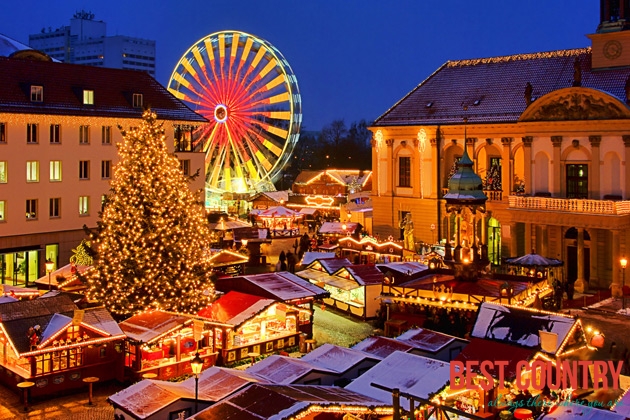Traditional Holidays of Germany

Erntedank
The Erntedank celebration is the German version of the U.S. Thanksgiving Day celebration. It is a time for Germans to acknowledge the work and accomplishments that have transpired throughout the country's fields and gardens over the past year.
Unlike in North America, the Erntedank celebration is not celebrated on one particular day. It is also not celebrated by everyone in Germany. In fact, it is primarily a religious holiday celebrated by those in rural areas.
The most common day to hold the celebration is the first Sunday in November. The celebration is usually an all-day event that takes place at a church. Normally, there is a morning service that is followed by parades, music, dancing and food. There are some celebrations that end with fireworks after the evening church service.
Walpurgisnacht
The German holiday of Walpurgisnacht is celebrated and acknowledged in many parts of central and northern Europe. Walpurgisnacht is a pagan holiday that occurs on the night of April 30 and is much like Halloween in America.
Legend has it that on the last night of April, witches gather at the highest peak in the Harz Mountains, or Brocken, to hold a great celebration and wait for spring to arrive.
While the holiday is pagan, the name is not. Walpurgisnacht is named after Saint Walburga, who became a nun before she traveled to the convent of Heidenheim in Wurttemberg in Germany.
She died in 777 and was later granted sainthood. Her Saint Day is May 1; therefore, April 30 is known as Walpurgisnacht.
This holiday is celebrated in many different ways throughout central and northern Europe. These include holding bonfires, community picnics in parks, community festivals, dressing up as witches and playing pranks on neighbors and friends.
St. Nikolaus Day
St. Nikolaus in Germany is much like Santa Claus in America. St. Nikolaus Day is celebrated in Germany on December 6.
St Nikolaus was a bishop who died in 343. He was well known for doing good deeds throughout his life, especially for people in much need.
One traditional German celebration of this holiday features a long-bearded man going from door to door to visit the children.
Just like an American Christmas, each child in town is asked if they have been a good boy or girl. Often, the children will sing songs or recite poems to show St. Nikolaus how worthy they are to receive gifts.